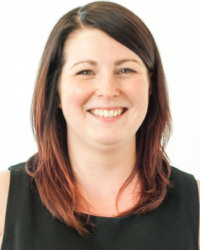In part one of this blog my colleague Aaron Slater and I talked about the changes we were trying within our team to improve our digital wellbeing.
In part two, I’m back to tell you what worked, what didn’t and what we learned over the last month.
What did we do?
It was clear within the team we were ready to make some changes to our remote working culture and we were lucky that we already had a lot of the tools and flexibility to be able to try to make these changes.
We were all aware that wellbeing, and the language we use around it, can sometimes come across as ‘gimmicky’, so with that in mind we wanted to keep things simple by implementing some small, practical changes to see if it would help us break our online bad habits and improve our overall wellbeing.
What worked?
Office chat: We used the Slack ‘huddle’ function which allows you to chat without cameras and pop in and out as you like. We all loved this feature as it meant not having to look at a camera, being able to chat whilst continuing with other bits of work and having quick huddles rather than more formal scheduled Zoom meetings.
Accountability: To keep wellbeing at the front of our minds and stop us slipping back into old habits, we Introduced a section into our weekly team stand-up where we ask ‘how’s your wellbeing’? This was the most successful thing we tried as it kept us accountable and encouraged us to be more open about how we’re feeling.
Outcomes over outputs: We tried to place more value on specific things we wanted to achieve rather than focusing on the list of tasks we would have to complete to get to that point.
What needs work?
Meetings and diary management:
We tried to:
· limit the number of meetings we would have in a day
· keep more time between meetings
· introduced protected ‘no meeting’ time
· keep our meetings to either 25 mins or 50 mins.
This was the hardest thing we tried. We all struggled to say no to meetings that took place in protected time or meant we’d be on Zoom for the majority of the day.
To support one another to stick with these changes, we introduced a ‘diary review’ at our stand-ups to go through our schedules which helps with healthy diary management.
What we learned:
The guilt is real! We found valuing ‘work’ time as much as meetings a challenge and struggled with ‘empty’ diary time.
Busy doesn’t mean better. We’re trying to change our attitudes to value meeting-free days and the importance of less screen time.
It’s hard to learn good habits and easy to slip back into bad ones. However, we’ve felt the benefits when we’ve stuck to it, so we’ll continue to hold each other accountable
Wellbeing is intrinsically linked to a sense of control over workload. We all noticed the difference good diary planning makes to your day – to this end we’ve created a high level workplan using Trello to help us balance our resource and capacity better
What’s next?
Making these changes has overall had a positive impact on the team. Whether it was being better at valuing non-meeting time, being honest about having a bad day or the benefit of a daily lunch walk, we all agreed this new approach has been a positive experience for the team.
We plan to formalise this change by creating a ‘team etiquette’ document to help us to stay focused, as we now realise how important remote working wellbeing is and want to ensure it’s embedded into our team culture for now, and in the future. Team reflections:
Here’s what the team said about how the new approach worked for us as individuals:
Rory: “I found it liberating to have a team who all know that work doesn’t always happen at a desk.”
Aaron: “My biggest lesson from the past few weeks is the importance of having accountability. I’ve really tried to model behaviours to set an example and make sure that the ‘permission’ to work differently is visible for everyone in the team to see.”
Jason: “The biggest change for me has been a better sense of control over my workload. Prioritising wellbeing and the value of my time has created mental space for new ideas to percolate and reinvigorated my approach to old ones.”
Claire: “I’m proud of our team for making these changes, even though it hasn’t been easy. Personally, I have more energy, the quality of my work has improved and I have more headspace to be creative.”







